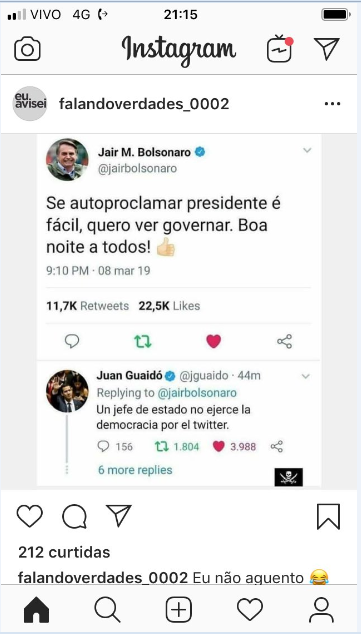Also interested in "staying on the cutting edge of human rights."
But we need a "vibrant economy to support our workers."
He wastes his precious seconds praising the community.
Fact check: He grew up here. He lives in the house that was his dad's. But I suppose he decided to stay here, so maybe that counts.
Her reasons for running: Housing, social equity, transportation, environment, economic vitality.
First one to admit she's nervous.
"Huge risk of displacement" when OZ moratorium expires.
The fourth woman of color on the stage. Go Boulder!
Interesting...
Yeah, me, too: Money.
"I like to solve problems ... cultivate change." Has skills in "risk management" and "incredible amounts of patience."
"Vote for me to get ahead of the market so that we can get ahead of the growth."
Starts with a (lame) joke.
Housing affordability is the No. 1 issue in Boulder. He's on the HAB.
Second priority: Community engagement.
Is/was a real estate developer.
"We need to first de-toxify the conversation."
"I'm proud of what we achieved in the last four years," including:
As competition increases, how will you keep downtown vibrant?
Suggests expanding the downtown car-free zone.
Yates: Housing, housing, housing.
Better transit system needed, too, and free parking downtown.
Also skill-building and "quality job opportunities" and investing in training.
Brockett: We have programs helping with that (inclusionary fees, middle-income down payment assistance) But we have to allow additional housing in the "right parts of town."
Also "likes the idea" of the middle-income program to enable them "to buy into what we have."
Joseph: I have experienced housing shortage myself. I believe it's extremely important to use all necessary tools to increase housing in Boulder. We need infill; we also need to not use so much space for housing.
"There's a whole lot more we can be doing." Taking about increasing our affordable housing.
Peterson: That's "one of the things we've been great at." Praising Open Space program.
Talking about open space deficit. Supports the tax; wants it extended in perpetuity.
Cure (with "the budget" in his hands): In Boulder, we sometimes "love the idea and hate the practice."
Get to it ppl!
No real answer from either of them.
Another disclosure: EFAA pays me to consult for them.
Wallach: Every society is measured by how we deal with those in need.
We don't want thoughts. We want answers.
Yates: We should double it.
Talking about the need for guardian ad litem, outreach programs, etc.
Julca (still reading from a paper; the candidates got the questions ahead of time): I will stand up for residents and small biz in the opportunity zone... ?
Not really an answer. Damn, these candidates need to step it up tonight.
McIntyre: "It's offensive" to tell workers that Boulderites don't want to "wait in line" bc of high number of visitors
"Tourism is a very important part of our economy" but concerned about impact to open space and mountain parks.
Friend: "Small biz need a healthy economy to allow them to succeed." Talking about her new fave Mexican restaurant and how long it took to get thru city process.
Small biz also need to have places to locate.
Whoa.
"You can't have just one revenue stream." Brings up "diversification of revenue streams." Doesn't say what they would be.
Someone behind me says: "There's a definition!"
Would like to see "smaller, more frequent buses" and vans.
Celani says density does not increase efficiency. We need to respect neighborhoods.
She's also reading from her notes.
McIntyre: Yes, absolutely. We can use gentle infill and make our neighborhoods even more beautiful.
Says she's looking at the "data" that we've built over 700 units a year in Boulder, more than 2X the average before that, but prices going up.
Brockett: Those all go together.
"Collegiality and camaraderie are very important."
"While we do need consensus, we can't languish looking for it. We need to get things done."
McCord (who works with the Human Services Alliance): I do support a higher min wage
I don't fully understand her answer, but I think it's a really good one. (Sorry, I know that's frustrating)
Joseph, restating her volunteerism at Boulder Shelter. "Mental health is extremely important."
Celani: We're doing pretty well overall. We need to collaborate with the county. (Also non-specific)
"This ripples through every q, but we need affordable housing for artists."
"Health and safety and protection of the public." Police, fire.
All things he referenced in his interview with me.
"I can't say one service is more important than another." (not reading notes for that)
Dolan (also reading from his notes) speaking against the citizenship q suggested by Trump. "People are people; all ppl should be counted." Doesn't say how.
Good answer.
"We do have 15 property owners at Diagonal Plaza, so it's not a silver bullet." We have to convince them all to get on board.
Not sure how, though, he says.
Wallach: I think it's a great site; supported acquiring. But a lot of difficulties with cost.
City staff determined that was more expensive than demolition and rebuilding.
"I do support moving forward" but not with what we have today.
Swetlik talking about his work for a honey co.
We need a task force(!) specific for small biz.
"Clearly we're not doing enough" given all the closures, relocations.
Orba: Let's raise the minimum wage. Let's help ppl afford to live here.
"I want to make sure we use a racial and social justice equity lens" to make city decisions.
And "neighborhood input is very, very important to Alpine-Balsam." It's a "clear disconnect."
(Reading from his notes)
Also "saving the lives of my loved ones and neighbors" by pushing forward on CU South. It's all the issues: Housing, transportation, safety, etc.
Talks about demolition of buildings "we can probably save, we can probably still use."
Says she's not seeking endorsements from any groups bc they are "polarizing our community."
Wants to focus on "achieving our goals" on transportation, housing, climate. "Our expenditures and actions don't really match those goals."
She's reading from notes, too.
"I do not believe there is a direct relationship between density and reducing carbon footprint."
Also reducing divisiveness by having more neighborhood involvement in projects.
Bro, I love you, but nah.
He's going to ask a previous q: Does dense make sense? IT'S A FUCKING POEM!























